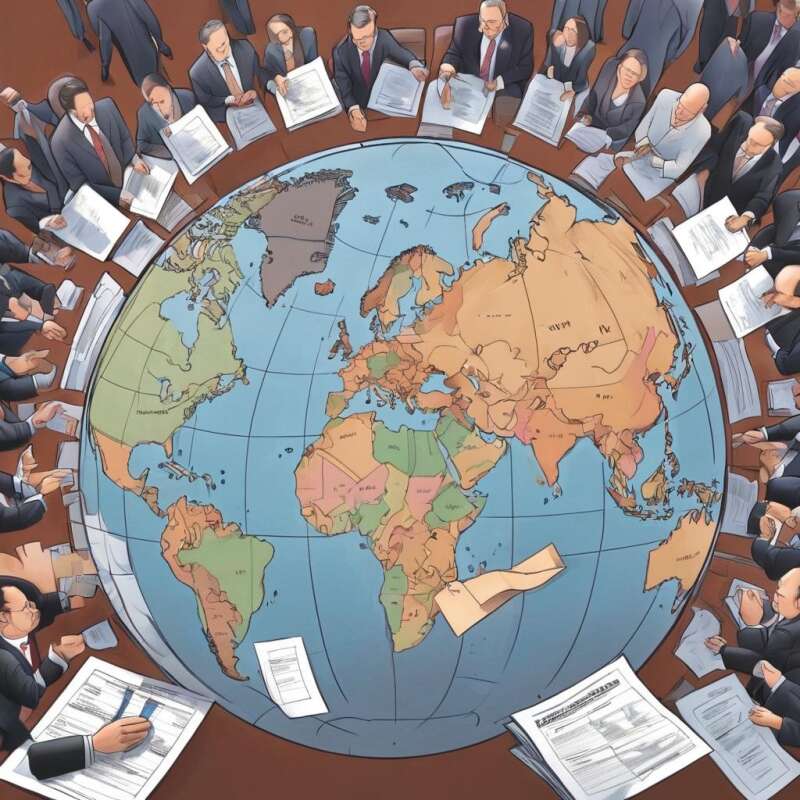Global Political Developments
Conflicts, Economic Shifts, and Social Movements Shaping the World
Recent Conflicts and Their Impact
Global politics in 2025 continues to be dominated by ongoing conflicts that have reshaped territorial boundaries, economies, and international alliances. These wars have caused immense human suffering and triggered widespread geopolitical realignments.
Russia-Ukraine Conflict
Russia's full-scale invasion of Ukraine in February 2022 has led to significant territorial gains for Russian forces, including the capture of Kherson and parts of the Donbas region. As of September 2025, Russia controls approximately 20% of Ukrainian territory, with ongoing military occupations in the east. The conflict has resulted in over 500,000 casualties on both sides, displaced 10 million Ukrainians, and caused economic losses exceeding $500 billion. The war has also strained global food supplies due to Ukraine's role as a major grain exporter, contributing to inflation and shortages worldwide.[1][2]
Middle East Conflicts
The Israel-Hamas conflict, ignited by the October 7, 2023, attack on Israel, has seen Israel launch a counter-invasion of the Gaza Strip, aiming to dismantle Hamas's military capabilities. By September 2025, the war has caused over 40,000 Palestinian deaths and displaced 1.9 million people in Gaza, while Israeli casualties number around 1,200 from the initial attack. Efforts to remove Hamas from power have included targeted strikes and ground operations, but the conflict has spilled into Lebanon and the West Bank, involving Hezbollah and other groups. The Arab Spring protests of the early 2010s, which led to regime changes in Tunisia, Libya, and Egypt, continue to influence regional instability, fostering ongoing social and political upheaval.[3][4]
Global Rise of Nationalism
Nationalist movements have surged worldwide, reshaping domestic policies and international relations. Leaders promoting ethno-nationalist ideologies have consolidated power, often at the expense of multilateralism.
- China under Xi Jinping: Xi's emphasis on "Chinese Dream" nationalism has accelerated military modernization and territorial assertions in the South China Sea and Taiwan Strait, straining ties with the US and its allies.[5]
- India under Narendra Modi: Modi's Hindu nationalist policies, including the Citizenship Amendment Act, have heightened communal tensions and altered India's secular fabric, impacting relations with Muslim-majority neighbors like Pakistan.[6]
This rise has led to increased tensions, border disputes, and a retreat from global cooperation, contributing to a fragmented international order.[7]
Economic Shifts
Economic instability and the emergence of new powers have redefined global trade, supply chains, and power dynamics.
Global Economic Instability
The COVID-19 pandemic, with its supply chain disruptions and inflation surges, combined with conflicts like Ukraine, has caused global economic instability. The Great Depression of the 1930s similarly fueled demands for independence and self-determination, reshaping political landscapes. In 2025, these factors have slowed global GDP growth to 2.5%, with developing nations bearing the brunt.[8][9]
Rise of New Global Powers
China and India have emerged as economic powerhouses, shifting the global balance. China's Belt and Road Initiative has invested $1 trillion in infrastructure across 150 countries, while India's GDP growth of 6.8% in 2025 positions it as the world's third-largest economy. These shifts have led to new alliances and governance challenges in institutions like the UN and WTO.[10][11]
Social Movements
Social justice movements have driven profound changes, challenging inequalities and inspiring global activism.
Social Justice Movements
Movements advocating for human rights, women's rights, and racial equality have reshaped policies worldwide. Leaders like Mahatma Gandhi and Martin Luther King Jr. inspired civil rights struggles, influencing modern campaigns like Black Lives Matter and #MeToo.[12][13]
Protests and Activism
The Arab Spring (2010–2012) led to regime changes in Tunisia and Libya, while anti-austerity protests in Latin America and Europe have pushed for economic reforms. In 2025, climate activism and pro-Palestine demonstrations continue to influence global politics.[4][14]
Conclusion
Global political developments in 2025 are defined by ongoing conflicts like Russia-Ukraine and Israel-Hamas, the rise of nationalism in China and India, economic instability from pandemics and wars, and vibrant social movements advocating for justice. These factors have fragmented the international order, challenging multilateralism while highlighting the resilience of activism. As new powers emerge and tensions escalate, the world faces a pivotal moment requiring cooperative solutions to address shared threats like climate change and inequality.[7]
Sources
- Conflict in Ukraine, CFR
- Ukraine War Overview, BBC
- Israel-Hamas War Update, Al Jazeera
- Arab Spring Ten Years Later, CFR
- China's Xi Jinping Nationalism, CFR
- India Modi Nationalism, BBC
- Global Rise of Nationalism, Foreign Affairs
- World Economic Outlook April 2025, IMF
- Great Depression History, History.com
- China Global Influence, CFR
- India Overview, World Bank
- Mahatma Gandhi, Britannica
- Martin Luther King Jr., Nobel Prize
- Climate Change Activism, Amnesty International
- Global Political Trends 2025, Foreign Affairs
